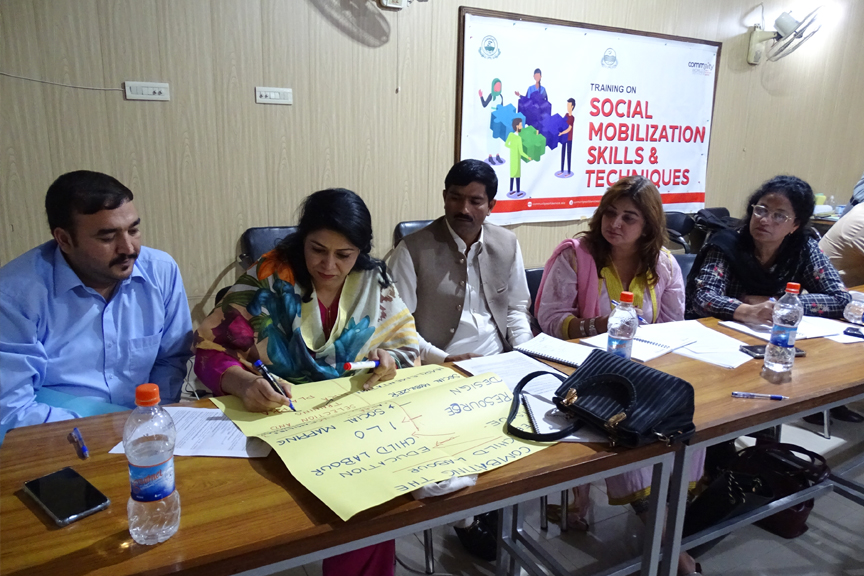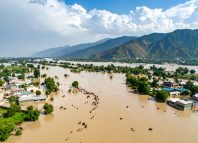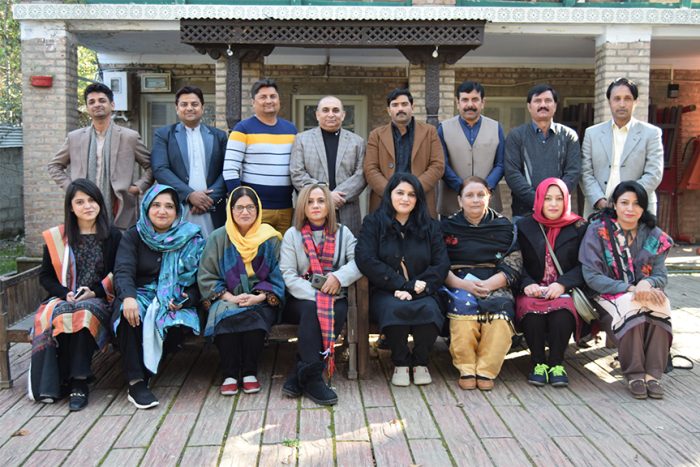Every year Pakistan faces a surge of Dengue outbreak in most of its provinces. With the floods of 2022 leaving lakes of stagnant water and with inadequate drainage systems, the spread of the disease was inevitable to say the least.
One of the areas worst affected by dengue each year is Okara, a district in Punjab province. “Many remote villages in Okara were hit by the outbreak. As the local communities were combating the disease using local and traditional remedies, the Health and Welfare Society planned a community-centred strategy to mobilise communities affected by the disease,” shared Shabana Aamir, a staff member leading Health and Welfare Society (HWS), a local NGO based in Okara.
“We explained principles of hygiene and sanitation through sharing local examples and fully engaged the communities by developing mobilisation teams. The teams, including staff of HWS and members from communities, went door to door to hold awareness sessions and sensitising families on how to prevent the spread of dengue and treat those affected,” explained Shabana.

Shabana was one of twenty-nine participants at a training conducted by Community World Service Asia on ‘Social Mobilisation Skills and Techniques’, held in Lahore in September 2022. Organised in collaboration with the Social Welfare Department Punjab and Social Welfare Training Institute this capacity enhancement session focused on raising knowledge on basic concepts of social mobilisation and jointly analysed the various levels of ongoing and possible community engagement. Shabana attributes her team’s success in combatting dengue to the skills and learning she acquired at the training and how she shared it ahead. “I initiated campaigns on a regular basis with the help of the training tools and methodologies I had learned during the training, and was able to reach out to people for implementation of ideas by the help of The Johari Window Model.”
A wide range of engaging exercises and activities were conducted during the training to not only further improve mobilisation skills of participants but also help them learn new tools and techniques and how to apply them in varying contexts. Ghulam Fatima, General Secretary of Johar Welfare Foundation since 2013, shared how one particular group activity, named ‘Zoom and Re-Zoom’, helped improve her problem-solving skills. “In this activity, we had to create a unified story from a set of sequential pictures that were randomly ordered and handed out. We were not allowed to show our picture to anyone. This activity boosted our level of patience, communication, and perspective in order to recreate the story’s sequence. As a result, we learned that it takes time to uncover and understand problems before acting out on them through effective communication and problem-solving skills.”
Fatima applied a social mobilisation tool called Behaviour Change Communication (BCC)ⁱ that she learnt during the training when she engaged with the communities that her organisation serves.
“Initially upon applying BCC in the community, mobilisation became challenging owing to insufficient time, lack of resources and slow adaptation by the community. To overcome the challenge, key persons from the community including retired teachers, health workers and shopkeepers, were invited to our office to become our focal points and representatives in the community. Through our collective effort, we were able to encourage individuals to adopt positive, healthy behaviours in the community including street sanitation, garbage collection at proper points, typhoid vaccination, and polio campaigns.”
A few months after the training, a follow-up session was conducted in December with all the participants of the said training to provide a platform for experience sharing, challenge identification, mutual learning and a chance to attain technical support from CWSA. “The follow-up initiative has proven to be productive as CWSA encourages organisation to implement and achieve positive outcomes through the efficient use and application of available tools and methodologies shared during the training. We hope to be part of future capacity enhancement events which will help us derive solutions for challenges faced on ground and encourage us to place communities at the centre of every response,” concluded Shabana.
ⁱ Behaviour Change Communication is an interactive process of any intervention with individuals, group or community to develop communication strategies to promote positive health behaviours which are appropriate to the current social conditions and thereby help the society to solve their pressing health problems.





